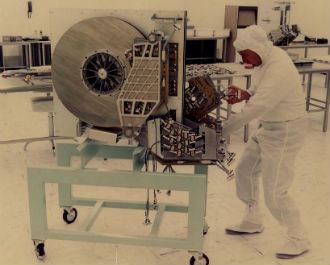 Although the PC market has seen better days, shipments of solid state drives are expected to grow more than 600 percent by 2017, according to the latest figures released by IHS. However, even at this rate, two thirds of PCs shipped in 2017 will still have mechanical hard drives, although many of them will probably be hybrids.
Although the PC market has seen better days, shipments of solid state drives are expected to grow more than 600 percent by 2017, according to the latest figures released by IHS. However, even at this rate, two thirds of PCs shipped in 2017 will still have mechanical hard drives, although many of them will probably be hybrids.
PC SSD shipments are expected to hit 227 million units in 2017, up from 31 million last year.
Hard drive shipments will drop to 410 million by 2017, down 14 percent from 475 million in 2012. In just five short years SSDs will claim 36 percent of the market, up from just six percent last year. HDDs will account for the remaining 64 percent, but memory makers stand to cash in from them as well, as hybrid drives hit the market in ever increasing numbers.
The driving force behind the SSD boom will be ultrabooks and other ultrathin devices. IHS analyst Fang Zhang believes ultrabooks and ultrathins, combined with touch screens and convertible form factors, will become very compelling machines, designed to lure consumers away from smartphones and tablets.
Of course, none of this is possible without more consumer interest. Although enthusiasts have been buying SSDs for years, the standard PC box buyer doesn’t care too much about the latest storage technology, which is still too pricey for mainstream adoption. Ultrabooks are slowly changing the public perception of SSDs are geeky devices for gamers and enthusiasts. Consumers are slowly starting to appreciate the added agility and responsiveness of SSD-based systems, and prices are tumbling as well.
On Tuesday Seagate announced its first series of SSD products designed to cover all market segments. The news was closely followed by an announcement from Western Digital and SadDisk, who will collaborate on new hybrid drives. Traditional HDD churners simply have to transition to SSDs and hybrid drives, it is just a matter of time.
“SSDs have dropped in price this year. The industry would probably put this down to supply and demand – but if I’m honest I think it’s all down to competition. Big players are moving in and really taking this industry to the next level – this week WD and Seagate separately announced their SSD push – and it wouldn’t surprise me if these larger players triggered a price war to push smaller players out of the market,” a reseller told us. “In terms of getting consumers more involved isn’t it just a case of making them a more prominent feature of gadgets and cost points? The average consumer just cares about what they can get and for how much.”
More marketing cash from the likes of Seagate and Western Digital will help, but so will tablets and smartphones. Consumer are already enjoying the perks of speedy solid state storage on their iPads and Androids, which means they are far more likely to go for an SSD based PC next time they upgrade. It is basically a case of not downgrading from a horse to a donkey, as Balkanese old wise men would say.





